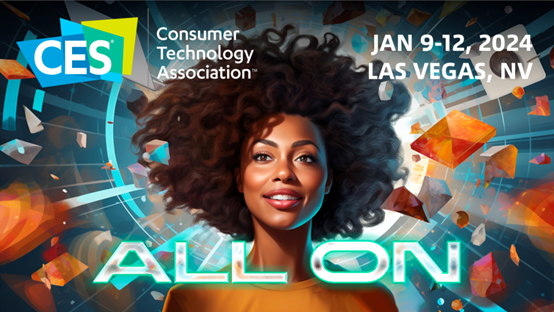
The CES exhibition is one of the world's largest and most influential consumer electronics and technology product exhibitions, and it is also a compass for the domestic technology industry. As CES progresses vigorously, technology trends are gradually emerging. This year, the theme of CES is clearly focused on artificial intelligence and technology for good.
With the development of AIGC technology, the application of AI is expected to experience explosive growth. IDC predicts that by 2024, there will be over 500 million new applications worldwide, equivalent to the total number of applications that have emerged in the past 40 years.
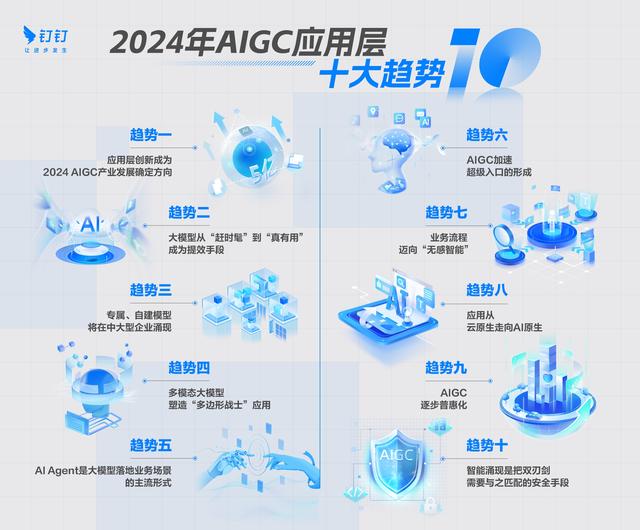
In 2024, the ten key trends for AIGC (Artificial Intelligence and General Computing) applications encompass innovation at the application layer, AI Agent, exclusive models, super entry points, multimodal capabilities, AI-native applications, toolification of AI, and the universalization of AI.
Among them, "AI Agent is the mainstream form of deploying large models in business scenarios" — AI Agent gives AIGC technology the ability to perceive, remember, plan, and take action, enabling the execution of complex tasks across applications and making "human-machine collaboration" the new normal. In the future, AI Agents will transform the organizational form of productivity, with more and more innovation originating from super individuals and small organizations. Individuals and businesses are entering the era of AI assistants. This can be glimpsed from devices like Rabbit R1 during CES and the AI PIN that gained popularity in the tech industry at the end of 2023.
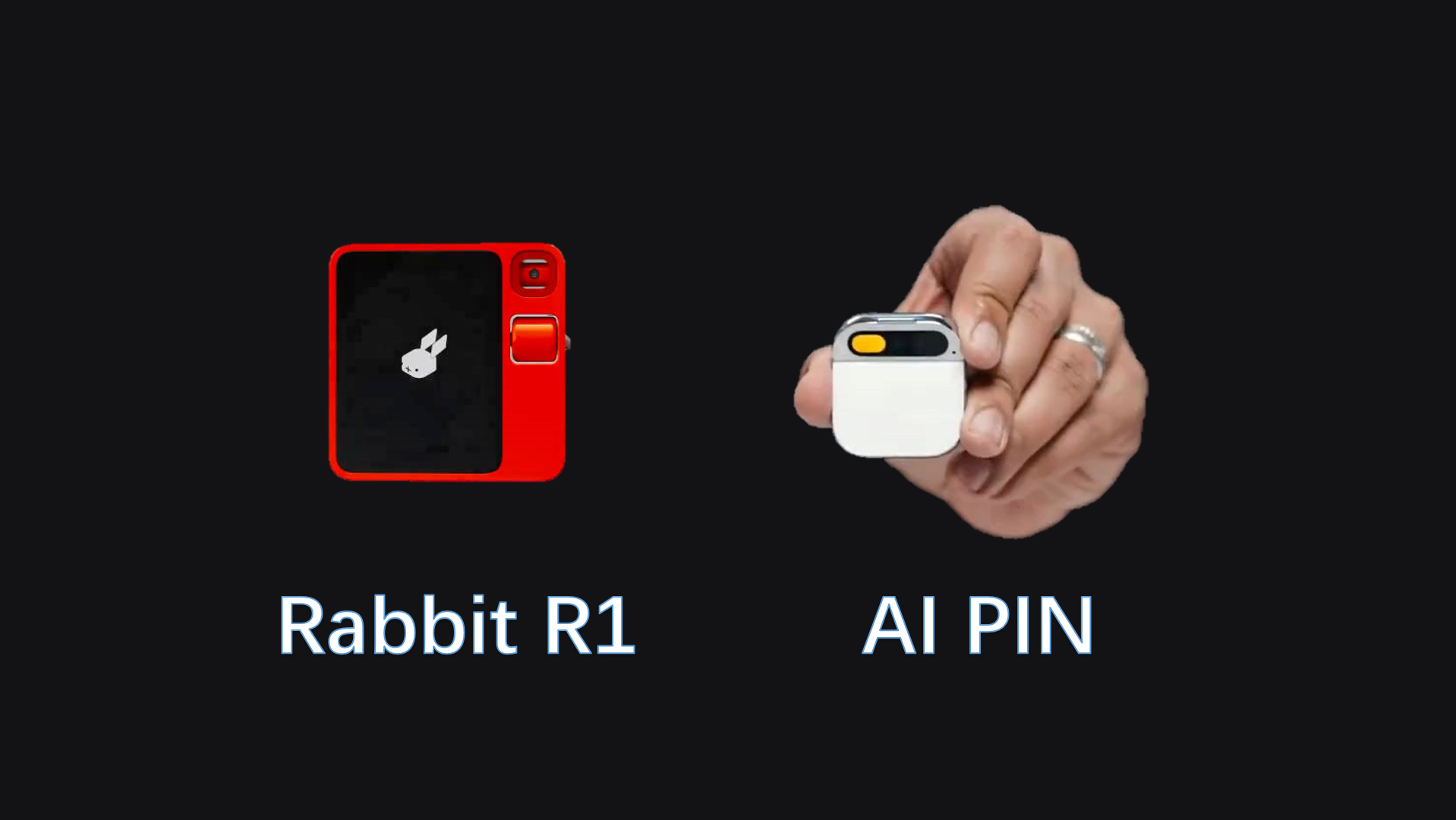
This also implies another phenomenon – emerging human-machine interaction methods from China are advancing to the forefront globally. In addition to Rabbit R1, which originated from China, intelligent rings and lightweight smart glasses from China are also very eye-catching. For example, at this year's CES exhibition, Arcension attracted attention from domestic and foreign media with its "lightest personal AI terminal with the appearance of ordinary glasses."

It is reported that among the products exhibited by Arcension this time, besides the "world's smallest near-eye display," there are also two AI terminals named "Plato" and "Galaxy." These glasses, in terms of appearance, are almost indistinguishable from traditional ordinary glasses. Whether it's the weight or the overall thickness of the frames, it's difficult to perceive their intelligent capabilities just by looking at them. It's hard to believe that they are smart products based on their appearance alone.
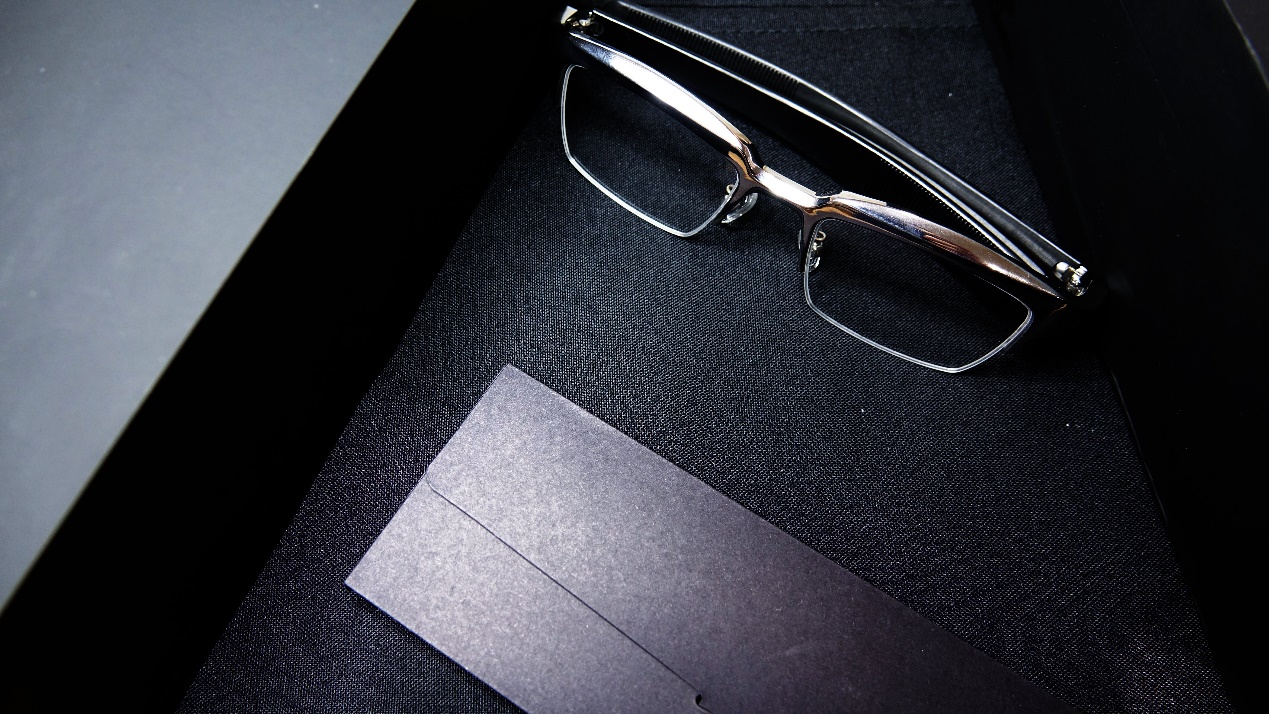
Plato features a black frame with a more business-oriented style, while Galaxy has a stylish titanium alloy silver frame. This is likely the world's first smart eyewear with a metal exterior. Regardless of the frame style, the display solution based on Arcension's DigiWindow technology is ingeniously integrated into the frames in an exceptionally compact, almost invisible manner. Coupled with the ultra-low power consumption characteristics of DigiWindow technology, the batteries and control systems are also seamlessly incorporated into the arms of the glasses in an unimaginably small volume. This achieves a visually convincing effect, leading on-site media reporters to exclaim "unbelievable."
There is a consensus in the tech industry that hardware carriers can be divided into four quadrants: portable, wearable, new additions, and existing ones. Consumers generally believe that a good product should meet their needs without adding extra peripherals. The most ideal form is considered to be wearable and integrated with existing carriers. "A phone is not good enough because you still need to carry it in your pocket or hold it in your hand; it's portable. Glasses are wearable, integrating well with the human body, and have been adapted for over 100 years," said Deng Xudong, the founder and COO of Arcension, in an interview with reporters at CES.
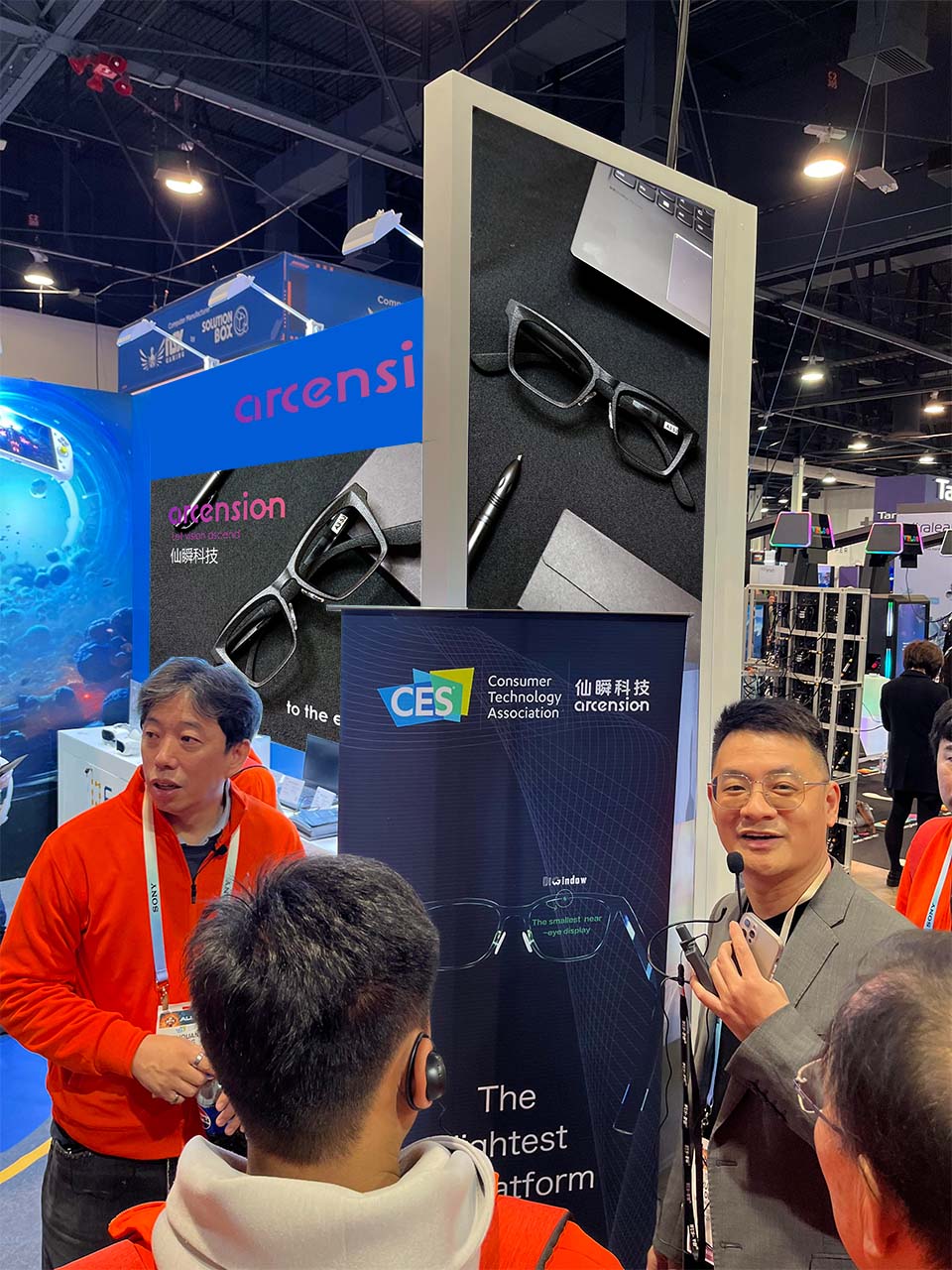
Arcension's CES booth, the founder & COO Deng Xudong, the right one
In recent years, AI technology has rapidly advanced in interactive methods, and the interaction across multiple terminals has become a long-term coexistence lifestyle for humans and AI. 'Based on the world's smallest near-eye display solution, we can enable ordinary glasses to have display capabilities while still retaining the natural portability and fashionable attributes of glasses. On this basis, combined with other interactive hardware (whether implanted or externally linked), further integrating with AI capabilities can become a new way for people to enjoy a technological life in the future,' said Dr. Lü Zheng, who formerly worked with Apple's Vision Pro core optical team and currently serves as the founder and CTO of Arcension
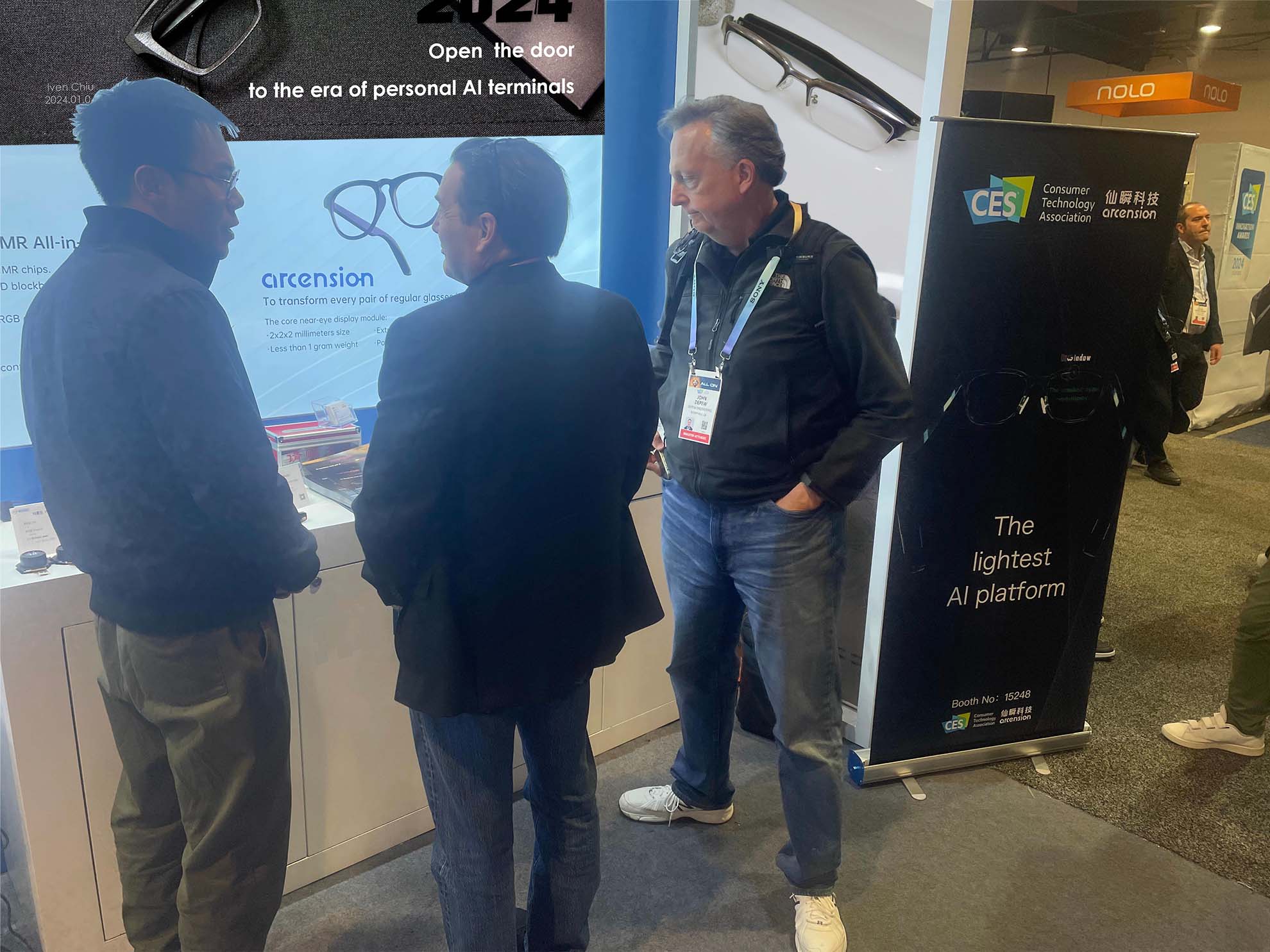
the founder and CTO of Arcension, Dr. Lü Zheng, Left one
It is reported that in addition to Arcension, many leading technology manufacturers from China, such as Lenovo, TCL, NIO, and others, participated in this year's CES exhibition. Chinese technology enterprises showcased China's technological prowess to the global tech community, and they have frequently received recognition from international counterparts.
603, Nantianhui Innvoation and Research Center,Zone 71 xingdong Community, Xin'an Street, Bao'an District, Shenzhen, Guangdong, China
Service hotline:86-0755-86700241
Email:info@arcension.com
Copyright © 2024 Arcension All Rights Reserved 备案号:粤ICP备2024237259号